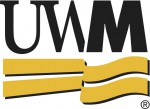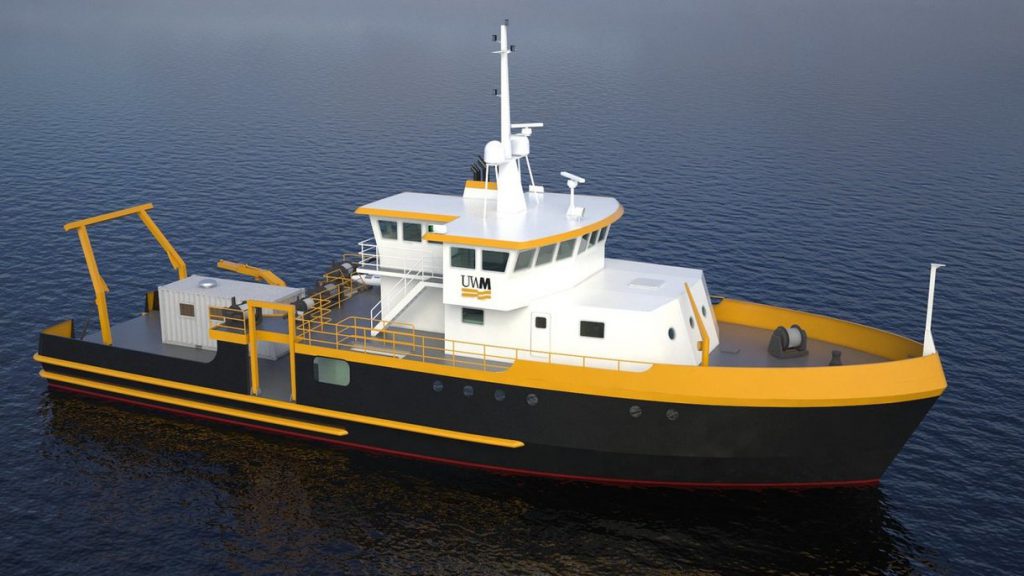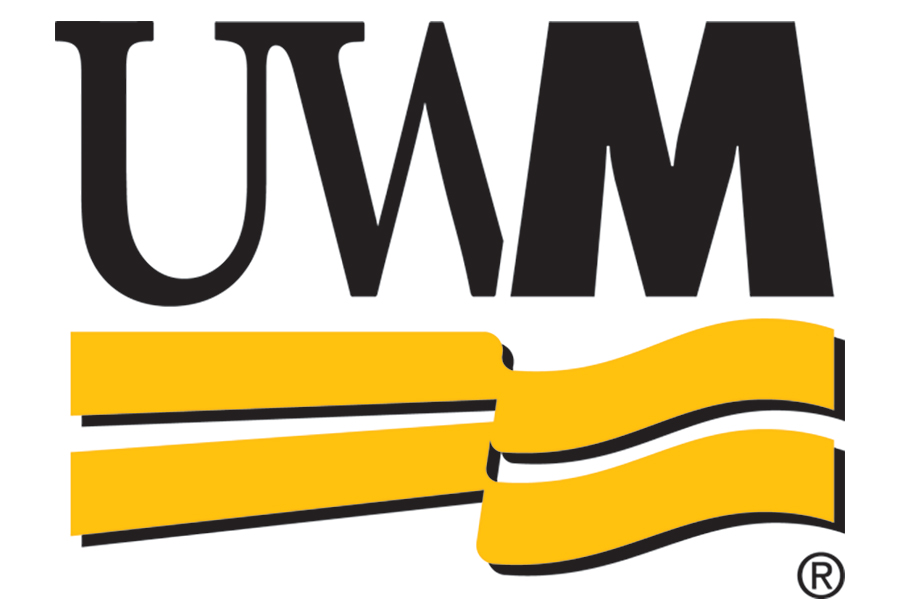UWM Research Vessel Gets Green Light, Thanks to $10 Million Gift
The Maggi Sue will be the most advanced research vessel on the Great Lakes.
MILWAUKEE _ An anonymous donor of the Greater Milwaukee Foundation has committed $10 million toward a new research vessel for the University of Wisconsin-Milwaukee’s School of Freshwater Sciences. This gift equals the largest gifts ever received by UWM. In recognition of the gift, the vessel will be named the Research Vessel Maggi Sue (pronounced “Maggie Sue”).
“This gift will transform UWM’s efforts to protect the Great Lakes, our nation’s largest freshwater resource,” UWM Chancellor Mark Mone said. “More than 40 million people rely on the Great Lakes for clean drinking water, and this vessel will give us the technological platform necessary to advance our scientific understanding of these bodies of water to help us address our most pressing problems. I am profoundly grateful for our donor’s vision and willingness to lead this effort to steward our water. On behalf of UWM and our research partners, I extend my deepest thanks for this incredible act of generosity and for the Greater Milwaukee Foundation’s role in making it happen.”
The Maggi Sue will be the most advanced research vessel on the Great Lakes and the first designed specifically for conducting sophisticated research on these bodies of water. It will replace the Neeskay, a converted Army T-boat that is more than 65 years old. The 71-foot Neeskay was purchased by UWM in 1970 – nearly 50 years ago.
The Maggi Sue, measuring 120 feet in length, will possess onboard technology that will open new avenues of research and increase scientists’ ability to understand, explore and manage our freshwater resources. The vessel will feature sensors that collect real-time data, interchangeable lab pods that can be switched out depending on scientists’ needs, and a dynamic positioning system that allows the vessel to stay in one place despite the current, wind and waves.
The lab spaces will enable scientists to conduct experiments on the water. Classrooms aboard the vessel will allow groups of university students as well as K-12 students the opportunity to learn at sea. Unlike the Neeskay, the Maggi Sue will have sleeping accommodations for up to 18 people, allowing scientists and crew to remain on the water for longer periods of time to gather continuous readings without needing to return to shore.
“This gift has such catalytic power, not only for helping drive the research enterprise at UWM, but in further signaling Milwaukee is a city capable of leveraging its unique resources for economic, educational and ecological benefits,” said Ellen Gilligan, president and CEO of the Greater Milwaukee Foundation. “I applaud our anonymous donor’s remarkable commitment to freshwater science in giving UWM the leading-edge tools needed to better understand and protect our Great Lakes.”
UWM leads the Freshwater Collaborative of Wisconsin, a recently launched, statewide pilot program through which UW System campuses work together on a variety of freshwater challenges, while leveraging each location’s expertise within this field of research. The new vessel will be among the tools that researchers and students across the state of Wisconsin and beyond can use to advance the protection of this critically important natural resource.
“Science is the key to keeping our lakes healthy,” said Val Klump, dean of the School of Freshwater Sciences. “The Great Lakes are one of the world’s truly great natural resources. They sustain more than 1.5 million jobs and generate more than $62 billion in annual wages. They drive agriculture, energy production, manufacturing, real estate, shipping, tourism, recreation and quality of life. Yet, they are also biologically highly susceptible to natural and human impacts. Dead zones in Green Bay are growing larger, water levels in the lake are oscillating dramatically, and water quality is threatened by runoff and contaminants like pharmaceuticals. The Maggi Sue will give us the means to gain a clear and up-close picture of the challenges facing the Great Lakes and help us go further in generating solutions to these problems. I am so thankful to this donor for taking the lead role in seeing this vessel become a reality.”
About UWM
Recognized as one of the nation’s 131 top research universities, UW-Milwaukee provides a world-class education to 26,000 students from 91 countries on a budget of $689 million. Its 15 schools and colleges include Wisconsin’s only schools of architecture, freshwater sciences and public health, and it is a leading educator of nurses and teachers. UW-Milwaukee partners with leading companies to conduct joint research, offer student internships and serve as an economic engine for southeastern Wisconsin. The Princeton Review named UW-Milwaukee a 2020 “Best Midwestern” university based on overall academic excellence and student reviews.
About GMF
The Greater Milwaukee Foundation is Wisconsin’s largest community foundation and was among the first established in the world. For more than a century, the Foundation has inspired philanthropy by connecting generous people to community needs that align with their interests. The Foundation was founded on the premise that generosity can unlock an individual’s potential and strengthen the community as a whole for everyone who lives here. We work in partnership with those who are committed to ensuring greater Milwaukee is a vibrant, economically thriving region that comprises welcoming and inclusive communities providing opportunity, prosperity and a high quality of life for all.
About the UW-Milwaukee School of Freshwater Sciences
UWM’s School of Freshwater Sciences is dedicated to improving our health, economy and quality of life by providing the talent, tools and techniques to understand and manage our most precious natural resource – water. Located on the Milwaukee Harbor, the school is the largest water-focused academic research institution on the Great Lakes and has the only research vessel operating year-round on Lake Michigan. Its scientists and students advance understanding of the largest freshwater system on Earth, as well as urban rivers, storm and wastewater infrastructure, groundwater and inland lakes, aquaculture and fisheries, water robotics, and human and environmental health. The school pairs a rigorous, science-based curriculum with hands-on field work, applied research experiences and community engagement. As a result, 97% of its graduates are employed in water-related fields, with positions in industry, government, higher education and not-for-profit organizations
NOTE: This press release was submitted to Urban Milwaukee and was not written by an Urban Milwaukee writer. While it is believed to be reliable, Urban Milwaukee does not guarantee its accuracy or completeness.























